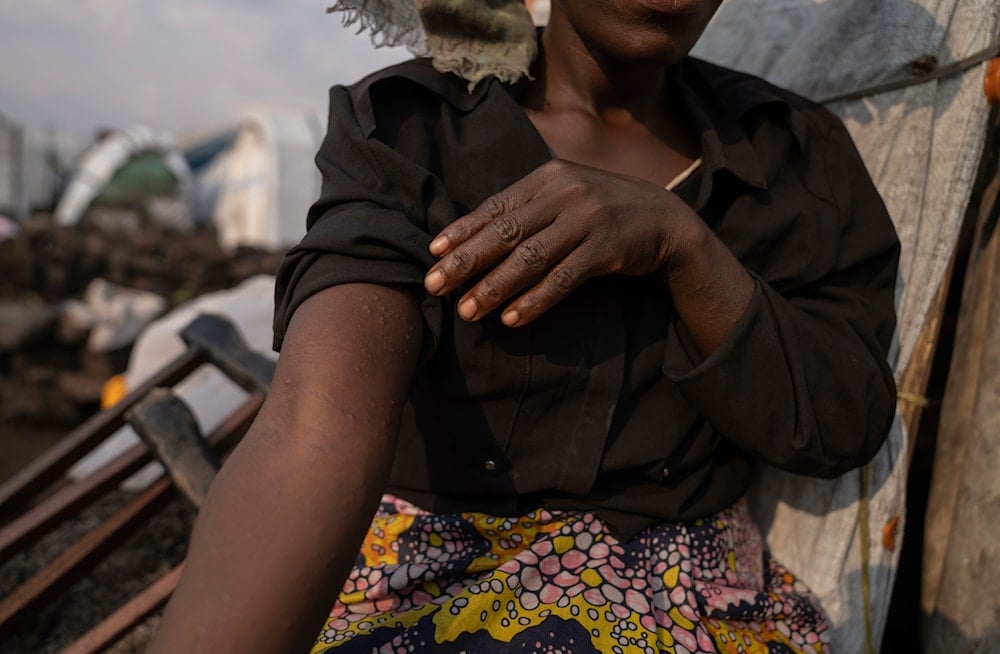Sweden identifies first Mpox case outside African continent
The Swedish Public Health Agency reveals that the infected individual contracted the virus during his stay in Africa.
-

Sarah Bagheni, in the Bulengo refugee camp in Goma, Congo, suspects she may be infected with Mpox after the World Health Organization had declared it an emergency on Thursday, August 15, 2024. (AP)
The Swedish Public Health Agency said that they have identified the first case of monkeypox outside of Africa.
In a statement on Thursday, the agency said, "A person who sought care at Region Stockholm has been diagnosed with Mpox caused by the clade I variant. It is the first case caused by clade I to be diagnosed outside the African continent," adding that the infected individual contracted the disease during a stay in a part of Africa.
Tedros Adhanom Ghebreyesus, the WHO director-general, has described the situation as "very worrying", justifying the "highest level of alarm" under the international health law. He pointed out the emergence of clade (Ib) in eastern DRC and its presence in neighboring countries.
The WHO has allocated $1.5 million from its contingency fund and plans to release additional funds, urging donors to contribute the remaining $15 million needed for the region’s response.
Read more: Alarms sound over new fatal Mpox strain detected in Congo
Scientists have likened the current Mpox outbreak in Africa to the early days of HIV, prompting the World Health Organization to declare it a public health emergency.
As of August 4, Africa has reported 38,465 Mpox cases and 1,456 deaths since January 2022, with over 14,000 cases and 524 deaths occurring in the DRC this year alone. The outbreak involves various clades of the virus, including a new clade Ib, which is particularly affecting children in the DRC and neighboring areas.
The Africa Centres for Disease Control and Prevention (Africa CDC) declared Mpox a public health emergency on Tuesday. Dr. Jean Kaseya, the organization’s director-general, emphasized that this declaration was "not merely a formality" but rather "a clarion call to action," requiring proactive and aggressive measures to contain and eradicate the virus.
At the beginning of August, the African Union approved $10.4 million (£8 million) for Africa CDC’s response. However, Kaseya has indicated that the continent will need approximately $4 billion to fully address the crisis.

 2 Min Read
2 Min Read








